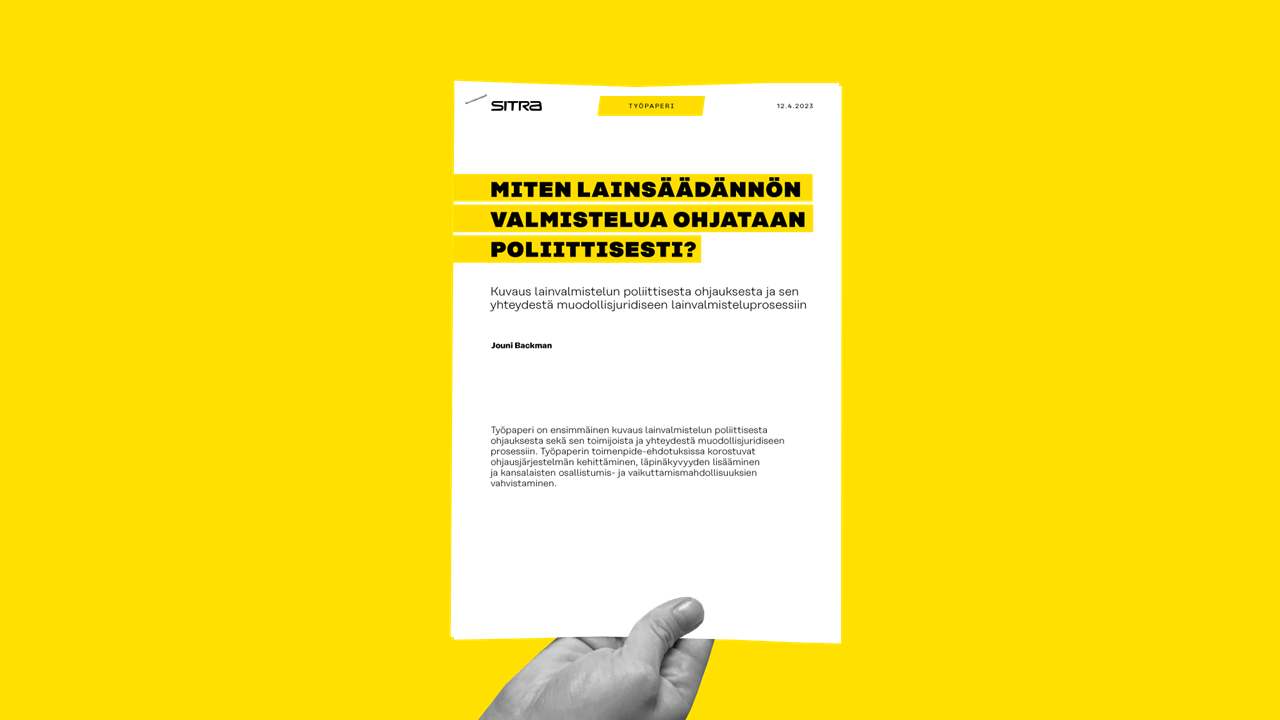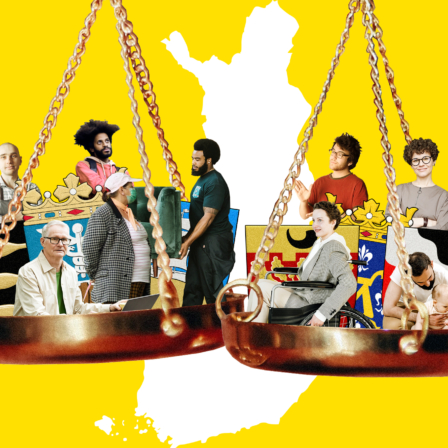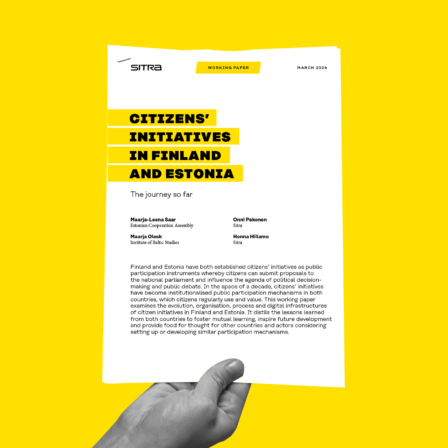Political steering is seen as a natural part of the legislative process, but only in the planning and decision-making stages. In the legislative drafting stage, political steering is also often seen as a problem. Nevertheless, when it is appropriately timed and implemented, it can also be an integral part of the legislative drafting stage.
The formal legal part of the legislative process is fairly precisely regulated and open. The political process, however, has no regulated form and is not public. The processes run in parallel and there are also tensions between them. The practices of political steering vary between electoral terms, political parties and individuals. The legislative process is significantly steered by the government programme and the planning processes of the political parties that precede the government programme. There are also attempts to influence this stage by public officials, which means that the formal legal process and the political process already intersect at this stage, although the emphasis is on the political process.
The actual legislative drafting process is a formal legal activity that is primarily the responsibility of public officials. Each ministry is headed by a minister meaning that the minister and their staff plays a crucial role. The problems and the ambiguity of roles in political steering are perceived to be particularly related to the legislative drafting stage. The political parties have no formal role in legislative drafting, but the most significant political steering takes place in the planning stage, where the de facto role of the parties is prominent.
The role of the parliament is important in the decision-making stage of the legislative process. In the planning and drafting stages, the parliamentary groups of the governing parties play varying roles in political steering. Efforts have been made to increase the opportunities for opposition groups to participate and influence through parliamentary drafting. Political steering differs from the formal legal process in that it does not generate public documentation or time stamps at the different stages of the process. This makes it more difficult to manage political steering as well as participate in it and influence it.
The political steering of legislative drafting should not be regulated too strictly. Instead, situation-specific leeway should be given, as befits the nature of the activity. Still, managing and developing political steering requires common rules and new operating practices. The interfaces between the political process and the formal process need to be clarified and mutual expertise must be strengthened. Opportunities also need to be increased for members of the general public to participate and exercise influence in the political process by making the stages of interaction more open and transparent.
The proposals for action presented in this working paper include the creation of a more specific legislative definition, framework and transparency for political steering, e.g. included to the possibly forthcoming reforms of the Constitution of Finland and the Act on the Openness of Government Activities. In particular, the working paper proposes that the informal rules for political steering and measures to develop steering the during each parliamentary period are agreed on and clearly communicated to all stakeholders already at the stage of forming the government.
















Recommended
Have some more.